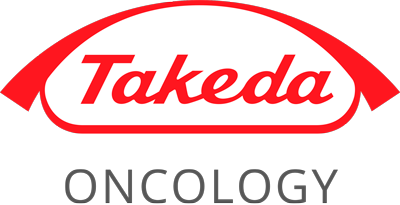Las terapias dirigidas y a la medicina de precisión ofrecen esperanza en linfoma de Hodgkin
Cada año se diagnostican unos 1.400 nuevos casos de linfoma de Hodgkin en España, sobre todo en pacientes jóvenes, entre los 15 y los 30 años. Se trata de un tumor hematológico que afecta a más hombres que a mujeres.
Con el objetivo de dar visibilidad al linfoma de Hodgkin y el impacto sobre quienes lo padecen, de dar a conocer la evolución de su abordaje en las últimas décadas y sensibilizar sobre la necesidad de seguir investigando para ofrecer un futuro a todos los pacientes se ha puesto en marcha la campaña ‘Viaje al Linfoma’ (www.viajeallinfoma.com).
Se trata de una iniciativa desarrollada por Takeda, que cuenta con el aval social de la Sociedad Española de Hematología y Hemoterapia (SEHH) y el apoyo de la Asociación Española de Afectados por Linfoma, Mieloma y Leucemia (AEAL). A través del viaje se hace un recorrido por el pasado, presente y futuro del abordaje de esta enfermedad, narrado con las historias de pacientes, hematólogos y asociaciones de pacientes.
A través del testimonio de pacientes y médicos, el ‘Viaje al Linfoma’ hace un recorrido por el pasado, presente y futuro de esta neoplasia. Los avances conseguidos ofrecen una oportunidad para las personas que tienen dicha enfermedad.
C-ANPROM/ES/ADCE/0105 - Enero 2023
Mejor supervivencia
Gracias a los avances científicos se ha conseguido que la tasa de supervivencia a 5 años llegue hasta el 91% de pacientes. El problema surge en los casos en los que la enfermedad está avanzada, puesto que dos de cada 10 que no logran superar la enfermedad.
El doctor Ramón García Sanz, jefe de la Unidad de Histocompatibilidad y Biología Molecular del Hospital Universitario de Salamanca y expresidente de la Sociedad Española de Hematología y Hemoterapia (SEHH), explica que “vamos disponiendo de terapias muy novedosas que proporcionan enormes posibilidades para tratar de mejorar los resultados en los pacientes que ahora no se curan”.
Y es que el perfil de los pacientes con linfoma de Hodgkin hace necesario que se tengan que lograr que los tratamientos interrumpan lo menos posible el proyecto de vida de los pacientes, que suelen ser muy jóvenes. Por eso, el hematólogo sostiene que “eso quiere decir que tenemos que conseguir el objetivo de curarlos al coste que sea necesario”.
Abordaje individual
Una de estos hematólogos es la doctora Izaskun Zeberio, que desarrolla su labor en el Hospital Universitario Donostia. Destaca que “ahora hay más opciones terapéuticas, y hemos logrado que los pacientes que no tienen buenos resultados con la primera línea de tratamiento, que son unos 10 de cada 100, o recaen, aproximadamente 20 de cada 100, respondan a la segunda línea”.
Por eso, es clave el manejo individual del linfoma de Hodgkin. “Gracias a la investigación, ahora contamos con tratamientos con menos efectos secundarios que se toleran mejor y están más dirigidos, en lo que se denomina la medicina de precisión, de modo que los pacientes que recaen hoy tienen más esperanza”.
Las asociaciones de pacientes tienen mucho que decir. De hecho, Marcos Martínez, gerente de AEAL, recuerda que “en los últimos 20 años, las asociaciones hemos evolucionado mucho, y aún debemos adquirir mayor protagonismo. En este sentido, promovemos que los profesionales puedan también hablar sobre la existencia de estas entidades, porque sólo de esta manera y trabajando conjuntamente con el resto de los agentes implicados podremos seguir avanzando para conseguir disminuir los tiempos de acceso a la innovación y, por supuesto, facilitar un equipo multidisciplinar al paciente con una información contrastada y rigurosa”.
Datos destacados
El linfoma de Hodgkin es un tipo de cáncer del tejido hematopoyético linfoide, uno de los encargados de protegernos de las infecciones, presente en los ganglios linfáticos, la médula ósea y la sangre. Este tumor se produce por la proliferación y multiplicación descontrolada y anormal de algunos glóbulos blancos, conocidos también como linfocitos; de ahí el nombre de linfoma.
Para poderlo reconocer, el síntoma más frecuente es el aumento del tamaño de los ganglios linfáticos, adenopatías. Se trata de un síntoma indoloro. Además, cerca del 25% de los pacientes manifiesta también síntomas generales, como son pérdida de peso, fiebre persistente o sudoración nocturna profusa.
En el campo de la oncología, “Takeda ha realizado una apuesta importante por innovar en el área de la oncohematología, mediante la búsqueda de líneas de investigación novedosas para ofrecer soluciones a las necesidades médicas no cubiertas. Además de investigar nuevas terapias, uno de nuestros focos de interés se centra en promover proyectos que permitan visibilizar la realidad de quienes conviven con el cáncer a diario y sensibilizar sobre la necesidad de seguir avanzando en esta dirección”, destaca Andrea Naves, Medical Director, Pipeline, Global Medical Affairs Oncology.

